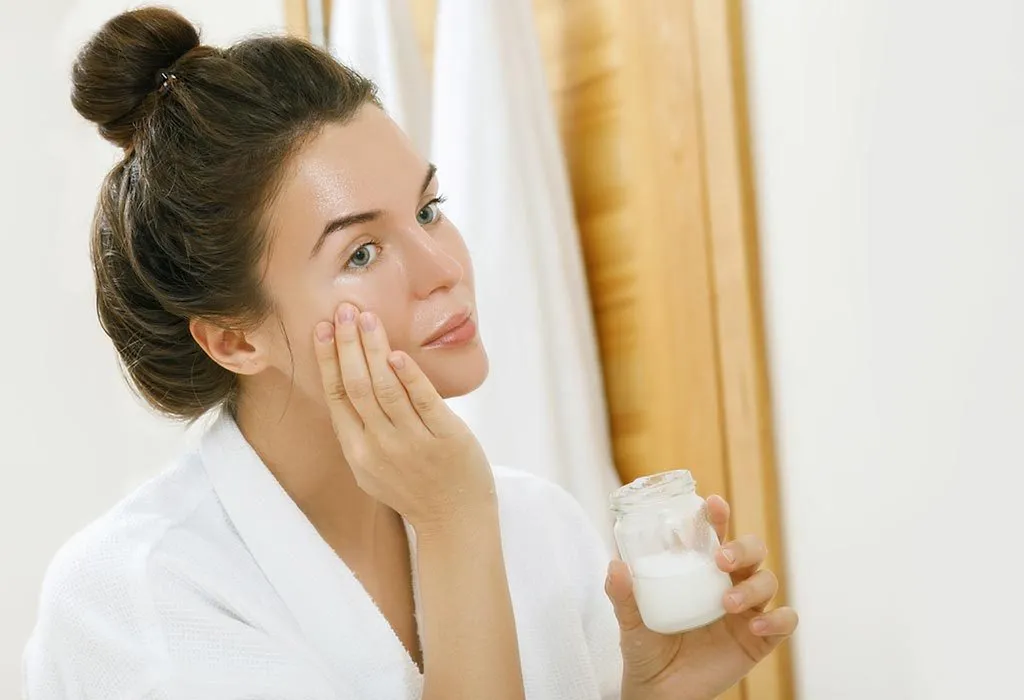With Wockhardt Hospital’s expert-recommended home treatments, you’ll prepare your skin to face the winter months. Here, you’ll discover the reasons behind winter dry skin as well as the top 10 methods to protect your skin during the winter months to keep your skin healthy and glowing and luminous.
Skin’s glow and hydration are diminished in the winter, which is why it’s crucial to keep your skin healthy, especially during this dry time of year.
DIY remedies are the most effective since they’re effective and don’t have any sort of adverse effect.
Homemade remedies can do wonders to the skin.
Opt the home solutions to achieve glowing and radiant skin.
10 Best Home Remedies for Skin in Winter
1) Banana face pack
If your face is dry, you can apply a facial masks made of bananas. All you have to do is mash the bananas and add honey, milk, lime juice and then apply it to your face.
2) Almond Oil
Almond oil is very beneficial to the skin since it gives the right amount of moisture to maintain your natural appearance. Massage your face with almond oil and then leave it in the night for most effective results. Make use of it on a daily basis to achieve more radiant and radiant skin.
3) Egg and honey whites pack
Honey and eggs are a couple of the finest ingredients that have been used for centuries by people. They supply the perfect moisture for the skin and the result is glowing and soft skin.
4) Milk and oatmeal
Make a paste out of cereals and milk. Apply it to your face, massage gently and allow it to dry. Then, after a couple of minutes, rinse it off. This will eliminate dead skin cells from your face and make your face appear more radiant and gorgeous.
5) Curd
Curd is a bit surprising to make it into this list. However, it can actually create skin that is stunningly beautiful and radiant.
6) Cucumber
Cucumber is the most effective solution to treat any kind of skin condition. Cucumber is high in water content. You can eat it directly or apply it to the face.
7) Coconut Oil
We salute the great coconut oil, the savior and everything it cannot do, other than maybe for people with oily complexions! For dull and dry the skin, coconut oil works as a fantastic moisturizer.
8) Aloe Vera
Aloe vera gel works as an excellent moisturizer due to its non-greasy texture. It can also be used as an aftershave. It also prevents wrinkles and acne on the skin and helps keep your skin supple.
9) Milk
Raw milk is actually an excellent toner for skin. It is loaded with antioxidants and lactic acid it can improve your complexion and reduce marks on your face that are dark. It is also possible to mix raw milk with ingredients such as honey, papaya turmeric, and so on to brighten your skin.
10) Drinking Lots and Lots of Water
Hydrating your skin from the inside removes toxic substances from your body, clearing acne by balancing your oils on your face as well as helping reduce wrinkles. It is suggested for women to consume at minimum 1.6 millilitres of water each every day while men drink around 2 three litres.
Causes of Winter Dry Skin
Dry skin in winter is a typical concern due to a myriad of environmental causes. Understanding the causes of dry skin can assist in the formulation of efficient preventive measures
- low temperature levelsLower temperatures have an immediate effect on skin. When the skin comes in contact to our skin, cold air absorbs the moisture. In the winter months, humidity levels are also lower; therefore, the moisture doesn’t remain on the skin as long.
- indoor heating systems:Central heating systems contribute to dryness in the indoor environment, depriving the skin of its vital moisture.
- Hot Showers Hot showers over longer time periods deplete the skin natural oils, further aggravating dryness.
- Cleansers that are too harsh: Using harsh soaps or cleanser can erode the skin’s lipid barrier creating dryness.
- Factors of Aging:Ageing skin produces less oil, which makes it more prone to dryness in winter.
- Hot beverages: Excessive consumption of beverages that are dehydrating, such as tea and coffee can lead to dryness of the skin.
- Skin Problems:Some people already have skin problems, such as Psoriasis or eczema, which can cause skin to dry out and even more so in the winter season.
Symptoms of Winter Dry Skin
Skin damage barriers in the winter may cause dryness. This may lead to:
- Dry skin can show apparent flaking and peeling.
- Dry skin may be red, causing irritation and irritation.
- Particularly in areas where friction is high the skin can become damaged and cracked.
- Itching that persists is a common symptom that indicates drying and dehydration.
- The effects of dehydration cause wrinkles, fine lines and wrinkles pop out in a greater extent.
- The increased sensitivity to products for skincare could be due to a weakening of the skin barrier.
- In severe instances dry winter skin can cause pain-inducing, deep cracks that require immediate medical attention.
- People with skin conditions that pre-exist can experience a flare-up in the winter months.
Medical Treatment for Winter Dry Skin
If you use the right products and some tweaks to your routine for skincare, you could be able to maintain a smooth, radiant skin all through winter.
Here are some of the key interventions recommended by health experts:
Lifestyle & Home Remedies
- Moisturizers: Every time you cleanse your skin, particularly during winter months, it is recommended to use a moisturiser. Dermatologists can prescribe special moisturisers to treat extreme dryness.
- Make sure you drink enough fluids: Increasing water intake is hydrating the skin, ensuring its smoothness. Supplements containing Omega-3/6 fatty acids as well as eating foods rich in these acids can be beneficial.
- HumidifiersUsing the humidifier at your home will help to maintain indoor humidity levels and improves the appearance of skin.
- Limit the length of your bath and make sure you use warm waterThe natural oils that are present on your skin are eliminated through hot water and long baths or showers. Bathing should be only done every daily for 5-10 minutes at an interval. Make sure to use warm water, not hot.
- Help with itching:If the area is itchy from dry skin, apply a dab with a clean, cool towel. Another option is using an anti-itch cream or ointment with at least 1% hydrocortisone contained in it.
If these remedies do not alleviate the symptoms you are experiencing or increase them, talk to an experienced dermatologist about creating an individual skincare regimen that is based on the type of skin you have and any other skin-related issues you may be suffering from. If you are suffering from a severe skin disease, your physician might suggest the use of a cream or an ointment. Corticosteroid creams are available for short-term use in order to reduce inflammation. Getting medical advice from the leading dermatologists at Wockhardt Hospitals will help you identify and treat any health issues that are underlying and that cause dry winter skin.

